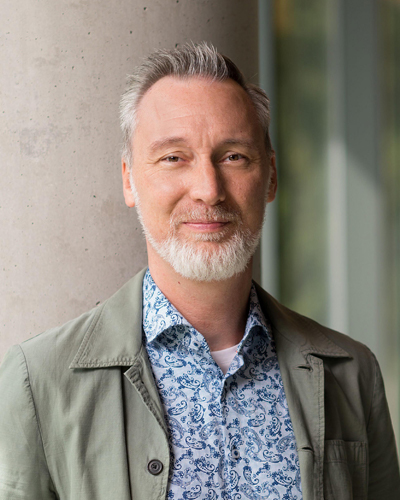
How to Gain Access to School Districts as a Faculty Researcher
If you’re hoping to recruit students from K-12 schools, developing effective school partnerships presents unique challenges and opportunities. How do I identify key contacts and work with different levels of authority to gain access to a school district? How do I build trust in the research topic and form collaborative relationships with teachers and parents? These are just some of the questions we’ll explore during a workshop hosted by the Office of Research in Education (ORE). This workshop is intended for faculty members conducting research in the Faculty of Education. The workshop consists of a moderated panel of faculty researchers and school district partners, followed by an opportunity to ask questions.
Workshop Details
This hybrid workshop is intended for faculty members and postdoctoral fellows in the Faculty of Education. The workshop consists of brief presentations by panelists followed by round table discussions, and an opportunity to ask questions. We invite attendees to submit their questions to the panelists beforehand or raise them during the Q&A.
Registration
Please register for the session format that suits you best. Please contact educ.ore@ubc.ca should you have any questions.
Date
June 10, 2025, Tuesday
Time
10:00 am to 11:30 am
Format
Hybrid session (join in-person or on Zoom)
*Light refreshments will be provided for in-person attendees
In-Person Location
PCOH 2012 (Ponderosa Commons Oak House)
6445 University Blvd, Vancouver, BC V6T 1Z2
Attending Online?
A zoom link will be sent to registrants closer to the date.
RSVP
Meet your Panelists
Dr. Maureen Kendrick, Professor (LLED)
![]()
Dr. Maureen Kendrick is a Professor in the Department of Language and Literacy Education at the University of British Columbia. Dr. Kendrick’s research examines literacy and multimodality as integrated communicative practices, and addresses a range of social and cultural issues in diverse contexts, with a particular interest in visual communication.
Dr. Margaret Early, Associate Professor (LLED)

Dr. Margaret Early is an Associate Professor in the Department of Language and Literacy Education (LLED) at the University of British Columbia. Her research focuses on teaching newcomer multilingual learners across the curriculum in K-12 schools. She has been the principal investigator on large-scale collaborative research projects and a member of an LLED team undertaking research in schools and teacher education institutions in Canada and East Africa. Currently, she is conducting research, with Dr. Maureen Kendrick, to better understand the potential of digital multimodal composing (DMC) for disciplinary literacy learning for newcomer, multilingual learners.
Dr. Andrew Schofield, Principal, John Oliver Secondary School – Vancouver School Board
![]()
Dr. Andrew Schofield began his career as an educator in South Africa during the country’s transition from Apartheid, focusing on school-community relationships. This was a central theme of his PhD research, which he completed in EDST at UBC in 2003. He has served as both Secretary and President of the Vancouver Secondary Principals and Vice-Principals’ Association. As a teacher, Andrew collaborated with the LLED Faculty to strengthen research-based approaches to adolescent literacy and support for at-risk youth. Now the principal of John Oliver Secondary, Andrew continues to foster meaningful school-community and school-university partnerships to enhance student learning. He acknowledges the privileges associated with his race, class, and gender, and actively supports strategies—such as the Boycott, Divestment, and Sanctions (BDS) movement—that aim to resist systems of oppression like Apartheid.
Dr. Leyton Schnellert, Associate Professor (EDCP)

Dr. Leyton Schnellert is an Associate Professor in the faculty’s Department of Curriculum and Pedagogy and Eleanor Rix Professor in Rural Teacher Education. He is Pedagogy and Participation research lead in UBC’s Institute for Community Engaged Research and Inclusive Education research lead for the Canadian Institute for Inclusion and Citizenship. His community-based collaborative work contributes a counterargument to top-down approaches that operate from deficit models, instead drawing from communities’ funds of knowledge to build participatory, place-conscious, and culturally sustaining practices.